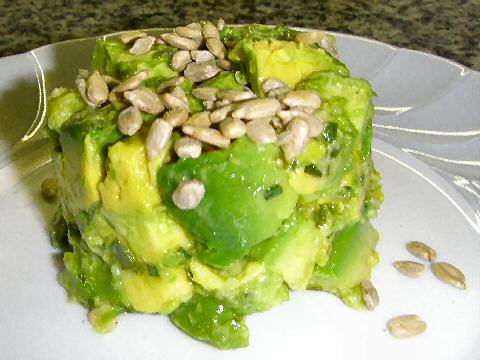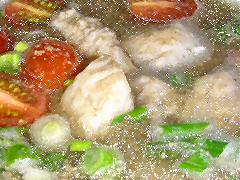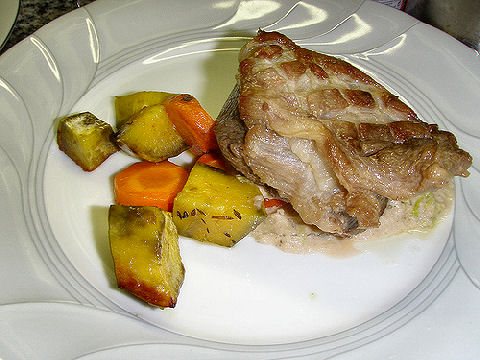“The government of Swaziland, one of Africa’s poorest and most Aids-ridden countries, has defended plans to spend nearly $2,5-million on celebrations to mark the 40th anniversary of independence. Opposition deputies have called for the celebrations, which will also mark King Mswati III’s 40th birthday, to be scrapped or scaled down given that most of the one million population lives on less than $1 a day. But government press secretary Percy Simelane said that the anniversary is an important milestone in the landlocked country’s history and will serve to unite the people. “Such celebrations are a unifying symbol to the Swazi nation because that gives the ordinary Swazi the chance of celebrating with royalty during such functions. The figure is not an issue,” Simelane said.”
– Mail & Guardian
Buenos Aires – Okay, so maybe picking King Mswati III’s 40th birthday as our week’s theme wasn’t the best choice. That’s in hindsight. I picked it a month or more ago, knowing little about Swaziland, his kingdom – vague scraps of memory from geography classes eons ago – and even less, if anything, about the King himself. At one time thought to be the shining hope for his country – with his traditional tribal roots fused with a “western” education – the king has apparently shown himself to be not much more than an egotistical, spendthrift playboy with a penchant for retribution against any public figures or media who criticize him, and the sobriquet of “Fire Eyes” for his quick temper. He has some truly… dumb… ideas as to how to handle problems that confront his reign – some 40% of his population have HIV or AIDS, and, similar to some other African leaders his first response was to deny that such a disease could exist within his country, later deciding to invoke a ban on girls having sex until they reached 21 years of age, then later a five year ban on all sex in the kingdom (other than for himself, of course), and only in recent years finally having woken up to the need to do something effective. He spends money like water – in one recent year buying a private jet that cost more than his nation’s entire health and education budget – using public funds, of course.
But, it was too late. I’d picked the theme, and done the research on the cuisine, and away we went, with apologies to anyone in or from Swaziland who would take offense to our little birthday party for the king.
The evening was ushered in with a cocktail based on Amarula, a South African liqueur – being the closest thing I was likely to find to a Swazi sort of drink – mixed with milk and coca cola (1:2:2) – sounds weird, but it actually works, and the cocktail is known as the Elephant’s Day Dream. On one night of the dinner we actually never got the cocktail served – there was a rush for spots at the table and everyone was suddenly seated, so we moved straight into the dinner.

I’m not going to claim any deep knowledge of the local cuisine – I’ve never tried Swazi food, and the couple of people I know who have actually been to the country apparently subsisted on “continental” style hotel food rather than much of anything locally inspired. But with avocados in full season here and a couple of references to a traditional salad called
Slaai, I thought it would be a great way to start. It’s simply very ripe avocado that’s been cubed, and then marinated in a dressing of lemon juice, olive oil (not traditional), lots of grated fresh ginger, salt and pepper. Various sources offered up chopped peanuts and or some sort of toasted local seeds as something to mix with the avocado, I decided on some sunflower seeds toasted with salt and chilies, just to give it a little spice. It really turns out delicious, though perhaps the serving of a whole avocado’s worth to each person was a bit much in the context of a five course dinner…


The soup for the evening, one that I could only find vague references to, is called, as best I could tell,
Gerdara. It’s supposedly one of a couple of traditional dishes served specifically for the king’s birthday, and therefore seemed appropriate. Without any exact recipe, I was left to wing it based on some descriptions, along with similar sounding recipes from neighboring countries. The soup underwent a couple of changes between the two nights, and still isn’t quite where I’d want it – the first night the flavors were dead-on, but I thought it was a bit too oily and the fish had sort of fallen apart into bits. The second night, I changed the process, cooking the initial base without oil, later straining the broth, and then adding the fish at last minute so it just fiirmed up and stayed in nice cubes – but I thought it had less intensity of flavor than the first night, so… hmmm… some compromise. The process – I cooked a paste of shallots, garlic, cilantro (stems and all), lots of ginger, some hot chilies, ground bay leaf, and grated orange peel in some neutral oil on night one, after about 7-8 minutes of cooking, when they’d developed lots of nice aromatics and were soft, I added some wine, cooked that down until it evaporated, then added the whey from making ricotta for the later dessert, instead of water, along with a mixture of hake, cod, pollack, and catfish, all nicely cubed – brought that to a simmer and let it go for about twenty minutes, seasoned to taste and then served, ladled over cherry tomatoes and green onions. The second night, the same paste was made using the wine upfront, instead of oil, and then cooked about ten minutes – my sense is that without the oil, the paste just never develops as fully on the aromatics. I then added the whey, simmerered for a little while, strained it (which also might have been the mistake, leaving all the bits in would have kept infusing the flavors, and only added the fish about five minutes before we served the soup. Both versions good, neither version quite where I would want the dish.

Much to the consternation of anyone who thought I ought to be celebrating passover this last weekend (which I’ll get to in the next post), I’d scheduled this dinner without realizing that Saturday was the first seder night. So be it – it was already planned and booked up before I realized. And we can compound the error with this dish – bananas wrapped in bacon and baked (I’d glazed the bacon with a mix of miso and molasses, just to give it a nice sort of barbecued quality), and served over a corn pudding. It was inspired by a dish I’d seen on a Swazi recipe site – though the corn pudding there sounded simply… uninteresting. So I went with something a bit more
norteamericano in origin… in a blender I combined roughly a quart of fresh corn kernels, just cut from the cob, 150 grams of butter, ¾ cup of coarse cornmeal, 1½ teaspoons of baking powder, 2 teaspoons of salt, 3 eggs yolks and pulsed it a few times until it was well combined. Meanwhile I blackened a trio of
ají vinagre, what we might call Italian frying peppers, let them steam a little, removed the skins and seeds, and finely chopped them. I mixed that into the corn mixture, then beat the three egg whites until stiff, ladled this into individual casserole dishes (roughly a half cup of mixture each, this quantity made 14-15 of them), and baked them in a 300° oven for about 35 minutes until puffed and firm. Then I simply placed the bacon wrapped banana atop, and served. Maybe it’s the old “everything tastes great with bacon on it”, but I loved this combination – all the various flavors combined, to my palate anyway, beautifully.

The main course was nothing in particular to look at – a simple pan-seared loin of lamb, some diced sweet potato and carrots that had been roasted with thyme sprigs, and the sauce, which was the key. The traditional dish, as best I could gather, and this is another of the king’s birthday dishes, involves stewing the lamb and vegetables in the sauce until it’s falling apart – but I only could find lamb loin, not any good stewing lamb, this weekend, so decided on another approach. The sauce is a pureed mixture of peanut butter (preferably something that isn’t laced with preservatives, salt, and sugar – I used organic peanut paste), lots of white onion, garlic, and a scoop of shrimp paste, which I thought was an interesting touch. That was all cooked down in peanut oil until lightly browned and very flavorful – watch the addition of salt, that shrimp paste already has alot… Meanwhile I julienned some napa cabbage, sauteed it until it was completely wilted and slightly browned, and mixed that into the peanut sauce, then cooked it all together for about ten minutes. That went under the lamb. The flavors are definitely there, but I think I’d like to try this dish the braised way next time…
For the dessert, a simple cheesecake made with the amarula liqueur mentioned above, which is a cream liqueur made with the fruit of the marula tree, an indigenous one to the area, in place of the milk I normally add to the mix. It was topped, on the first night, with a quickly made hot caramel sauce, which I thought went well with the cheesecake, but not a perfect match… the second night I tried simply dusting it with a cinnamon and sugar mixture, with I thought worked better in terms of flavor, though, of course, a warm caramel sauce is a great thing – so maybe a cinnamon caramel sauce…?
And, that’s the name of that tune, as “they” say… we’ll leave this as a tribute to the official 40 years of Swazi independence, if not to the same 40 years of the king’s life…









